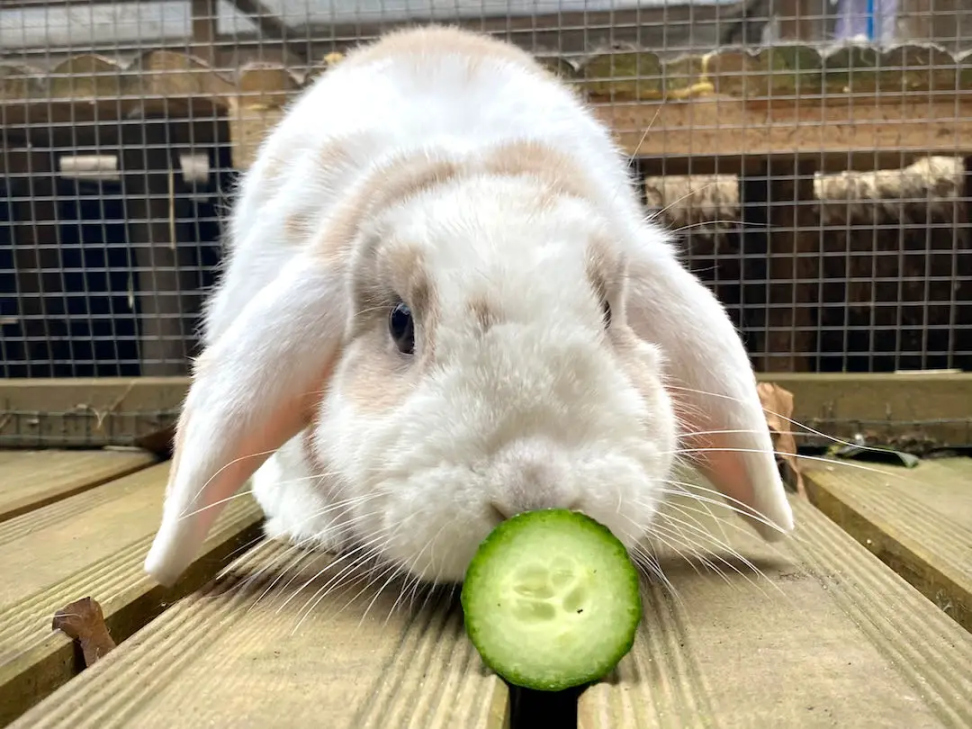Can Rabbits Have Cucumber?
Rabbits are adorable and popular pets known for their love of fresh vegetables. Cucumbers are a common vegetable found in many households, making pet owners wonder whether it is safe for their furry friends to indulge in this crunchy treat. In this article, we will explore whether rabbits can have cucumber and the potential benefits and risks associated with feeding them this vegetable.

Benefits of Feeding Cucumbers to Rabbits
Cucumbers are low in calories and high in water content, making them a hydrating and refreshing snack for rabbits, especially during hot summer months. They are also rich in vitamins such as vitamin K, vitamin C, and vitamin A, which are essential for maintaining overall health in rabbits. Additionally, cucumbers provide a good source of dietary fiber, aiding in digestion and promoting a healthy gut in rabbits.
Potential Risks of Feeding Cucumber to Rabbits
While cucumbers can be a healthy addition to a rabbit’s diet when given in moderation, it is important to be aware of certain risks. Cucumbers have a high water content, which means that excessive consumption can lead to loose stools or diarrhea in rabbits. Moreover, the skin and seeds of cucumbers can be challenging for rabbits to digest and may cause digestive issues. It is crucial to remove the skin and seeds before feeding cucumbers to your rabbit to minimize the risk of any digestive problems.
How to Feed Cucumber to Your Rabbit Safely
Feeding cucumber to your rabbit can be done safely by following these guidelines:
- Choose organic cucumbers to minimize exposure to pesticides and chemicals.
- Thoroughly wash the cucumber to remove any dirt or contaminants.
- Peel the cucumber to remove the skin, as it can be difficult for rabbits to digest.
- Remove the seeds, as they can also pose a digestion challenge for rabbits.
- Cut the cucumber into small, bite-sized pieces to prevent choking hazards.
- Introduce cucumbers gradually into your rabbit’s diet to observe how they react to this new food. If any digestive issues occur, discontinue feeding cucumbers immediately.
- Monitor your rabbit’s water intake after feeding cucumbers to ensure they are adequately hydrated.
Frequently Asked Questions
1. Can rabbits eat cucumber every day?
No, it is not recommended to feed rabbits cucumber every day. While cucumbers can be a healthy treat in moderation, feeding them in excess can lead to digestive problems. It is best to offer cucumbers as an occasional snack rather than a daily staple in your rabbit’s diet.
2. Can rabbits eat cucumber peels?
No, rabbits should not eat cucumber peels. The skin of cucumbers can be difficult for rabbits to digest and may cause digestive issues. It is crucial to remove the skin before feeding cucumbers to your rabbit to ensure their safety and well-being.
3. Can rabbits eat cucumber seeds?
No, rabbits should not eat cucumber seeds. The seeds can pose a digestion challenge for rabbits and may lead to digestive problems. It is important to remove the seeds before feeding cucumbers to your rabbit to avoid any potential health issues.
4. Can rabbits eat pickled cucumbers?
No, rabbits should not eat pickled cucumbers or any other pickled vegetables. Pickled cucumbers contain high amounts of salt and vinegar, which can be harmful to rabbits. Stick to fresh and organic cucumbers to ensure the safety and well-being of your furry friend.
In conclusion, rabbits can have cucumber as a treat, provided it is given in moderation and prepared correctly. Cucumbers can offer hydration, vitamins, and dietary fiber to rabbits, contributing to their overall well-being. However, it is important to remove the skin and seeds before feeding cucumbers to rabbits and to monitor their reaction to this new food. As with any new addition to a rabbit’s diet, it is best to introduce cucumbers gradually and observe any changes or digestive issues. Remember, the key is to offer variety and balance in your rabbit’s diet to ensure they receive all the necessary nutrients for a healthy and happy life.
Related Articles…
Copyright Notice:
This website utilizes images found online, all copyrights are retained by their original owners. If you would like an image removed, kindly contact us.